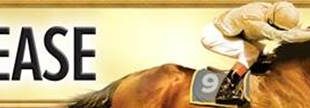The debate on whether trainers are or are not obliged to give out information on their first-timers in a race has become a little touchy and when one looks at it in an unbiased way as someone who never backs these young horses, there are valid points made for either side.
To put my point in clear perspective, I have never backed a first-timer and I have never, in more than 35 years as a racing journalist, asked a trainer about any of his or her runners. I have always operated on my own form study assessment. There was one occasion when I stupidly changed my Pick 6 perm to bank a horse which, according to another journalist who “got it from the horse’s mouth” – the trainer – that it was impossible to lose. It was beaten by one of the horses I had taken out of my perm.
Trainer Sean Tarry expressed his views on the matter in a lengthy article in The Racegoer yesterday and made some valid points. However, while for a number of reasons I do not see why trainers should not comment on their runners, I would also like to caution punters not to accept those comments as gospel as there are too many factors that could play into the situation.
There has been the long-standing argument that owners spend a lot of money in buying the horses and covering the training fees and they should therefore have “first bite at the cherry” to help recover some of those costs. That is a valid point and I don’t see why they should not have that chance.
The simple fact is that the racing public will never have a chance of getting the best price even if trainers come out and say they think their runner will win. The “stable” will already have secured that and once a stable bet on a runner is placed with the bookmakers the word spreads and the official betting will show it both with the bookies and on the tote.
But, for the average punter it is not about getting the best price, it is a question of backing the winner at whatever price. Sure, they would like to get 10-1 instead of 18-10 but it is better to take the 18-10 instead of backing the 10-1 shot that loses.
Racing is not an absolute science and if one goes back over the years and sees the number of “good things” that have been beaten then one realizes that there is a lot more to racing than the opinion of the trainer. Even in races where collateral form is available, trainers have not always got it right.
As far as first-timers are concerned, I believe trainers would not be doing themselves or their patrons down by making a fair comment on their runners – something like “he’s a nice horse and is fit and working well. He is bred to go further but has shown good pace. There is a lot of talk about so-and-so’s runner but I believe my horse could run into the money.”
It is common knowledge that if a stable backs a first-timer to win they have already tried the horse against a proven horse and know that on the ability it has shown it should win its first race. They would have already secured their price before as most stables have their preferred bookie that would more than likely give them the stretched odds to obtain the information and then lay off the bet with other bookies. The word then travels like wildfire which shows when a first-timer is priced up at the first call at short odds.
The dangers of backing first-timers even if trainers comment on them are plenty and include things like the excitement and nervousness of the occasion which could see them getting worked up and sweating up or giving problems at the starting stalls or even not getting away on terms. They may not have the confidence in a bunched field or they could be too eager and do too much early.
My advice would be to watch the betting bearing in mind the comments of the trainers, see how they move to the start then pick a couple and back them for a place or as a swinger. You can’t get hurt and success will boost your confidence in your ability to pick them on their appearance, breeding, the betting and the comments of the trainers.
So Tarry is very right about the fact that punters should involve themselves fully in the game. Get the form books and study them closely and even go to the extent of studying pedigrees. It is a fascinating sport and there is nothing more rewarding than picking a winner that beats the favourite based purely on your own study and observation.
Yes, and go to the course. Study the animal in the flesh and learn to note what a fit horse looks like and how it moves as well as its temperament. These are beautiful creatures and in some ways they could tell you more than what the trainer is prepared to.
I seldom back a horse on the nose but I remember a case at Scottsville when I saw a filly in the ring. She had disappointed in another race and was not the favourite on the day in question. But when I saw her and remembered how she had looked previously, I went straight to the tote and had the biggest win bet I have ever had on her. She won with ease.
To get back to the subject, transparency in racing is good and in this day where one can bet in a variety of ways it is not easy for a trainer to “hide” a good horse. One cannot deny that the information can leak through various channels including stable staff, jockeys and spotters.
In the end, all the punters want is a fair run for their money – and they are entitled to it.
Richard McMillan






